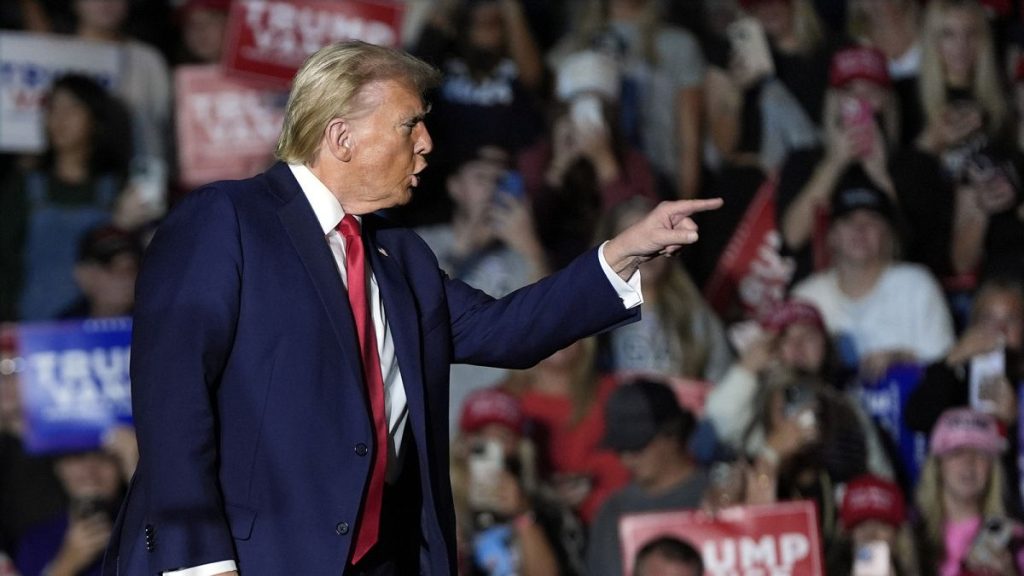The EU is facing potential economic shocks due to President Trump’s trade policies, particularly his threat to impose a universal tariff of up to 20% on all foreign-imported products if re-elected. This could have a significant impact on the EU-US trading relationship, which is valued at around €1 trillion annually. Sectors such as machinery, vehicles, and chemicals, which make up a significant portion of EU exports to the US, could be the hardest hit. Germany, as the EU’s economic powerhouse, would be particularly vulnerable to these tariffs.
Economists warn that Trump’s tariffs could deal a devastating blow to Europe’s economy, potentially pushing it into a recession. Estimates suggest that a 10% tariff could lower the eurozone’s GDP by 1% and make eurozone growth 1.5% lower by 2028. This could lead to job losses in both the EU and the US, as transatlantic trade and investment support around 9.4 million jobs. The EU has been strengthening its trade defense arsenal in response to previous tariffs imposed by Trump, but the bloc may struggle to respond effectively to the impact of new tariffs.
There is a real risk that the EU could be dragged into a trade war if Trump follows through on his threat to impose a 60% tariff on Chinese imported goods. This could lead to an escalation of trade tensions between Brussels and Beijing, as well as potentially impacting the EU’s trade relationship with the US. The EU may need to consider retaliatory measures to protect its economy, particularly if large volumes of Chinese products are redirected to the European market.
Analysts suggest that the EU may seek to negotiate an exemption from Trump’s tariffs before resorting to retaliatory measures. The bloc could offer concessions to Trump in order to avoid a trade war and prevent potential economic turmoil. Trump’s economic advisors may also consider limiting the scope of the tariffs to avoid negative effects on the US economy. However, there is concern that the cost of tariffs could be passed on to American consumers, leading to inflation and economic challenges within the US.
Overall, the EU is at risk of significant economic disruption if Trump follows through on his trade policy threats. The impact of tariffs on EU-US trade could have far-reaching consequences for both economies, potentially leading to job losses and a slowdown in economic growth. The EU may need to navigate carefully in order to protect its interests and avoid being caught in the crossfire of a potential trade war between the US and other trading partners like China. Negotiations and concessions may be necessary to mitigate the effects of Trump’s trade policies on the EU economy.


